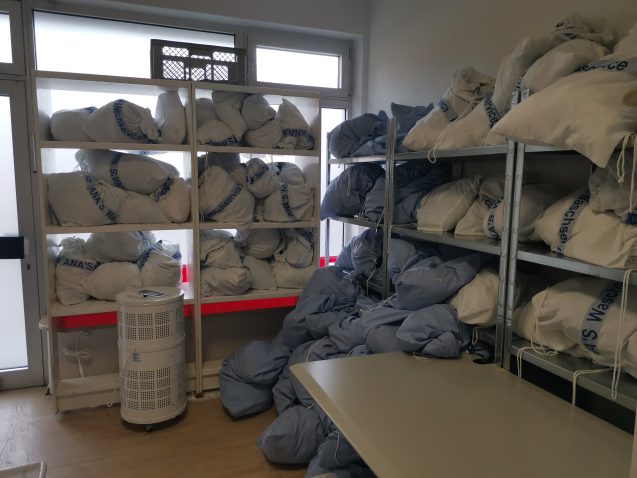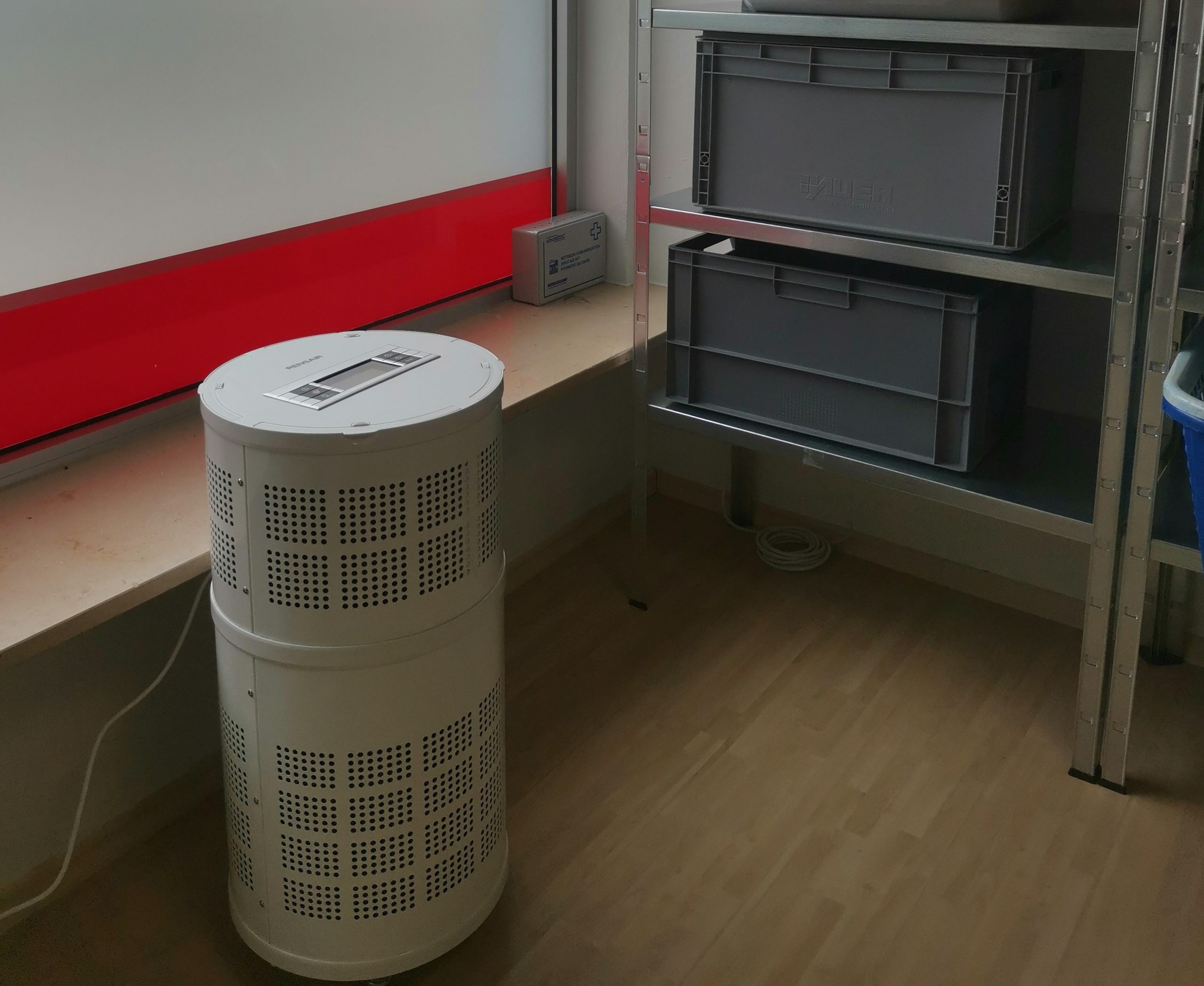Zer-O-Wash laundry keeps a clean sheet on air quality

Zer-O-Wash, the first climate-neutral commercial laundry in Germany, has invested in Rensair air purification to protect its staff and improve the working environment.
Linda Zoumis, owner of Zer-O-Wash, started the business in November 2021, with the main client being a local nursing home for the elderly. According to regulation, the cleaning operations must be split into two distinct areas, a dirty laundry room and a clean laundry room. In the dirty area, airborne cross-contamination via textiles is known to be a potential transfer route for pathogens, as reported by the Robert Koch Institute.
The Rensair unit was acquired for the dirty room, where the incoming laundry gets sorted and pre- selected before it goes for wash. The designated dirty area has two skylight windows, which provide insufficient ventilation to remove virus and bacteria particles, nor the strong odour that emanates from the soiled fabrics. Therefore, Ms Zoumis decided to supplement the limited fresh air intake with a heavy-duty air purifier.
 | “When choosing a suitable unit, I wanted to make sure that it was capable of removing and destroying harmful particles, including Covid, and that it could effectively clean the entire room”, said Ms Zoumis. “Removal of smell was also important. Rensair’s combination of HEPA and UVC, with a clean air delivery rate of 560 cubic metres per hour, could achieve all that.” |
To be up to the job, the air purifier had to be compact, yet robust. The size of the Core unit was ideal and the portability was also a key benefit, allowing it to be easily moved from one sorting table to another, depending on where the work had to be done.
When Ms Zoumis started looking for a suitable air purifier, there was no shortage of brands on the market, many making impressive claims. Rensair’s evidence-based technology, with certification from renowned scientific laboratories, was instrumental in her decision to opt for a hospital-grade unit with a strong pedigree.
Since acquiring the Rensair unit there have been no cases of Covid in her laundry, nor within the nursing home, which has 160 residents. Although that cannot be attributed directly to the laundry, it gives Ms Zoumis the feeling that something is going right.
“The smell in the dirty room has improved greatly, which reassures me that harmful contaminants are also being captured and destroyed”, concludes Ms Zoumis. “Most of all, I feel good that I have taken a positive step in safeguarding the health and wellbeing of my employees.”
